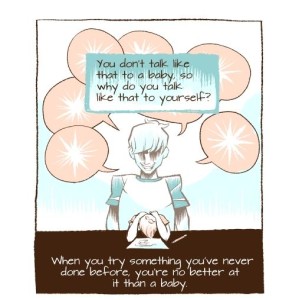We all know that an online ticket platform can make it more convenient for people to purchase tickets at their leisure, but a recent article on Slate suggests that it may also help sell tickets by avoiding opportunities for anxiety.
…1980s change in Swedish liquor retailing that led to stores being moved from an “ask a clerk to retrieve a bottle” model to a “self-service” format. It turned out that, not only did removing a layer of human interaction spike sales (by 20 percent) but it also led to a shift in those sales toward a large number of difficult-to-pronounce drinks. According to Swedes independently surveyed by the researchers, it is apparently harder to say Stolichnaya than Absolut in Swedish, and there were real challenges with French wine pronunciation as well.* So take away having to say anything out loud and the sales of the tongue-tied bottles increased by 7 percent.
Another example they gave was that online ordering for pizza increased the spending on each order. People didn’t order more pizzas, but they did order more toppings on each pizza. The theory was that people were more comfortable doubling up on meats or making a complicated order (like for a Starbucks coffee) when they could do so online rather than having to express it to a person.
Of course, that may not always be in the best interest of the consumer…
..the website induced more “double bacon” than “double veggies” orders. The picture painted is one of people avoiding the awkwardness of complex—and fattening—orders online and making simpler—and healthier—ones when they had to deal with a real, live person.
I oriented more on the concept that ordering online helped people avoid potential mispronunciations on shows like Antigone and Coriolanus or artists with foreign pronunciations like Stephen Colbert.
I wondered given non-profit arts organizations are in the business of educating, is it better to gently correct or even correctly pronounce the name when reviewing the order, or to just ignore the mistake and avoid embarrassing the customer at all.
I don’t have any research to show that this sort of anxiety factors into the method people choose when they order tickets, but the research showed that people deferred their real desires even when the opportunity for embarrassment seemed low.
Though anxiety over the ticketing ordering process probably ranks lower than most barriers to participation for arts audiences, it does seem like another reason for having the alternative available and easy navigate.
I am not trying to contradict my blogging confrere Drew McManus with the title of this post and encourage people to develop new apps, but many of the commenters on the Slate article mentioned how much they loved being able to place their order when they entered Starbucks or a deli and have it waiting by the time they got to the register.
It may be beneficial to use a ticketing service that offers those sort of apps so people can order in advance or while they wait on line.
Perhaps I am overly sensitive to constantly being up-sold during my Christmas shopping excursions, but the last paragraph of the article especially resonated with me. The author, Joshua Gans, notes that this potential for embarrassment also inhibits employees who are forced to ask for customer names, email addresses, store credit cards and extended warranties, from giving the best and most sincere service to customers. It can undermine confidence and goodwill if customers pick up on this unease or are annoyed at a time when they are spending money.
So in addition to examining whether your processes are making things difficult for your customers, you may need to evaluate their impact on your employees as well.

